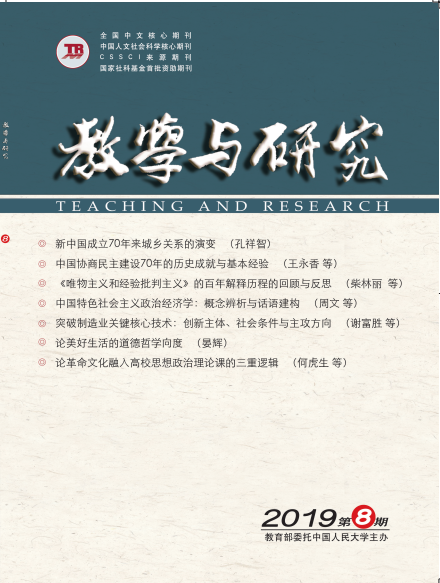In the 70 years since the founding of New China, the urbanrural relationship has undergone a turning point and can be divided into three periods. First, during
the period of severe deviation before the reform, under the traditional system consisting of the unified purchasing and marketing system, the people's commune system, and the “three pillars” of the household registration system, farmers accumulating funds for the industrialization of the country through the “scissors difference” of agricultural taxes and industrial and agricultural products, resulting in The serious deviation of urbanrural relations and the loss of agricultural and rural selfdevelopment capabilities. The second is from the reform and opening up to the improvement period before the 19th National Congress of the Communist Party of China. Due to the implementation of a series of “three rural” policies, the urbanrural relationship has intensified from the “restorative relaxation” in the early stage of reform to the tension in the late 20th century, and then to the “substantial improvement” in the new century due to changes in policies, institutions, and mechanisms. Third, the 19th National Congress of the Communist Party of China proposed a strategy for rural revitalization, and China's urbanrural relationship entered a period of integrated development. It is expected that when urbanization is basically achieved in 2035, the urbanrural relationship as a whole will reach the level of the current developed counties and cities.



